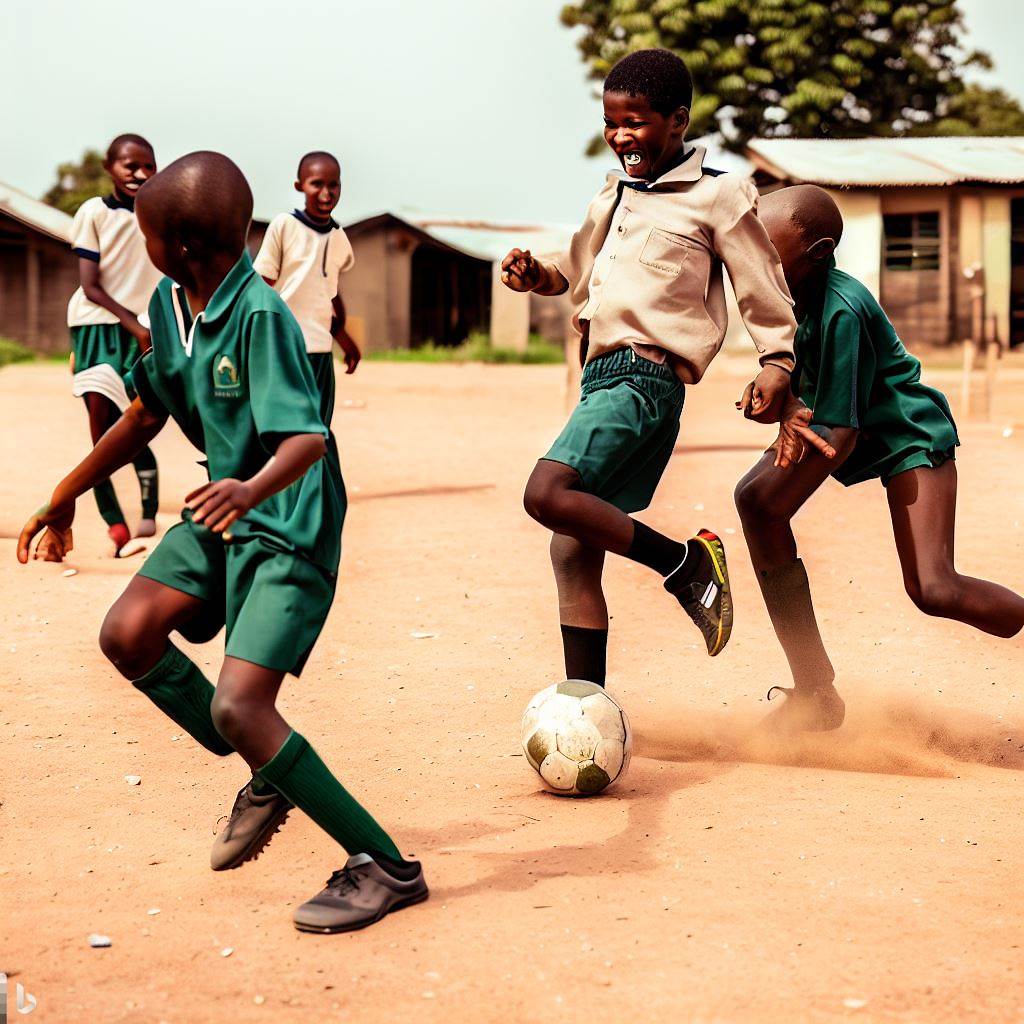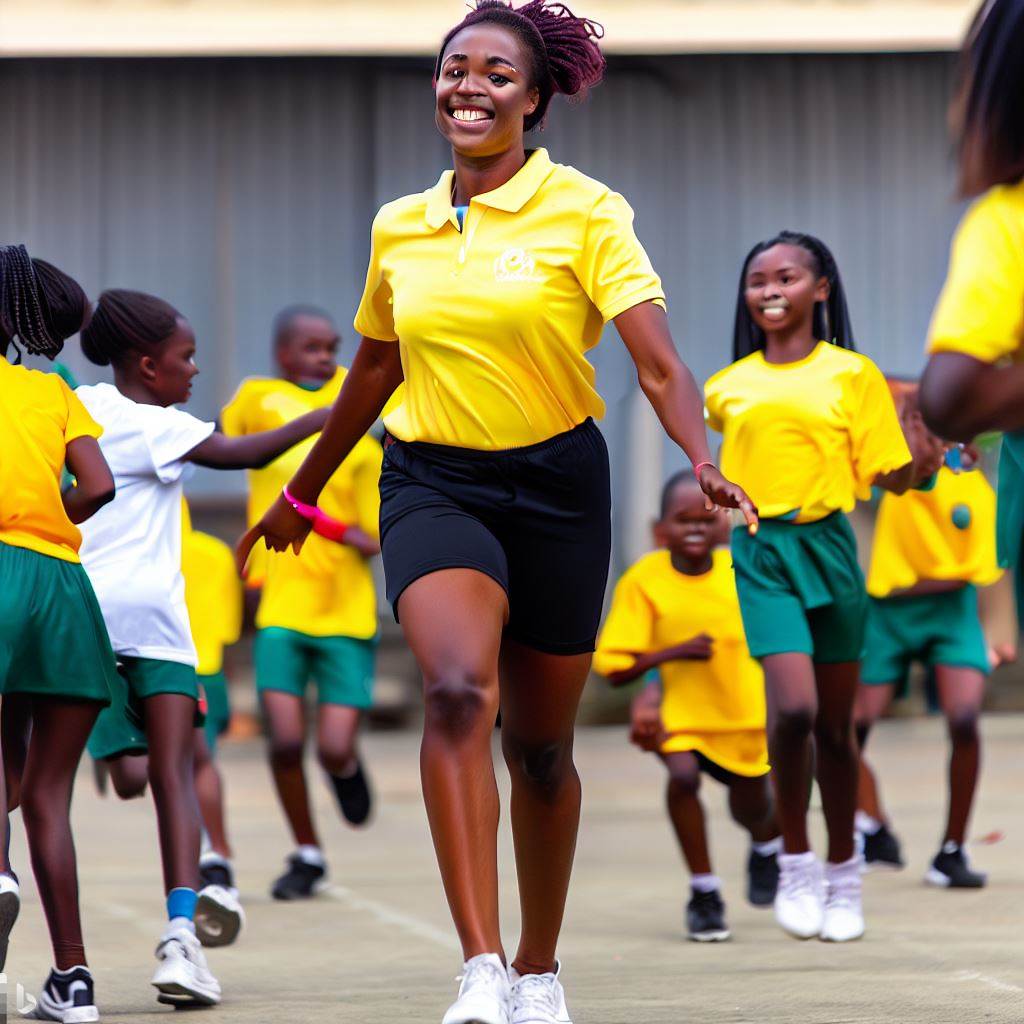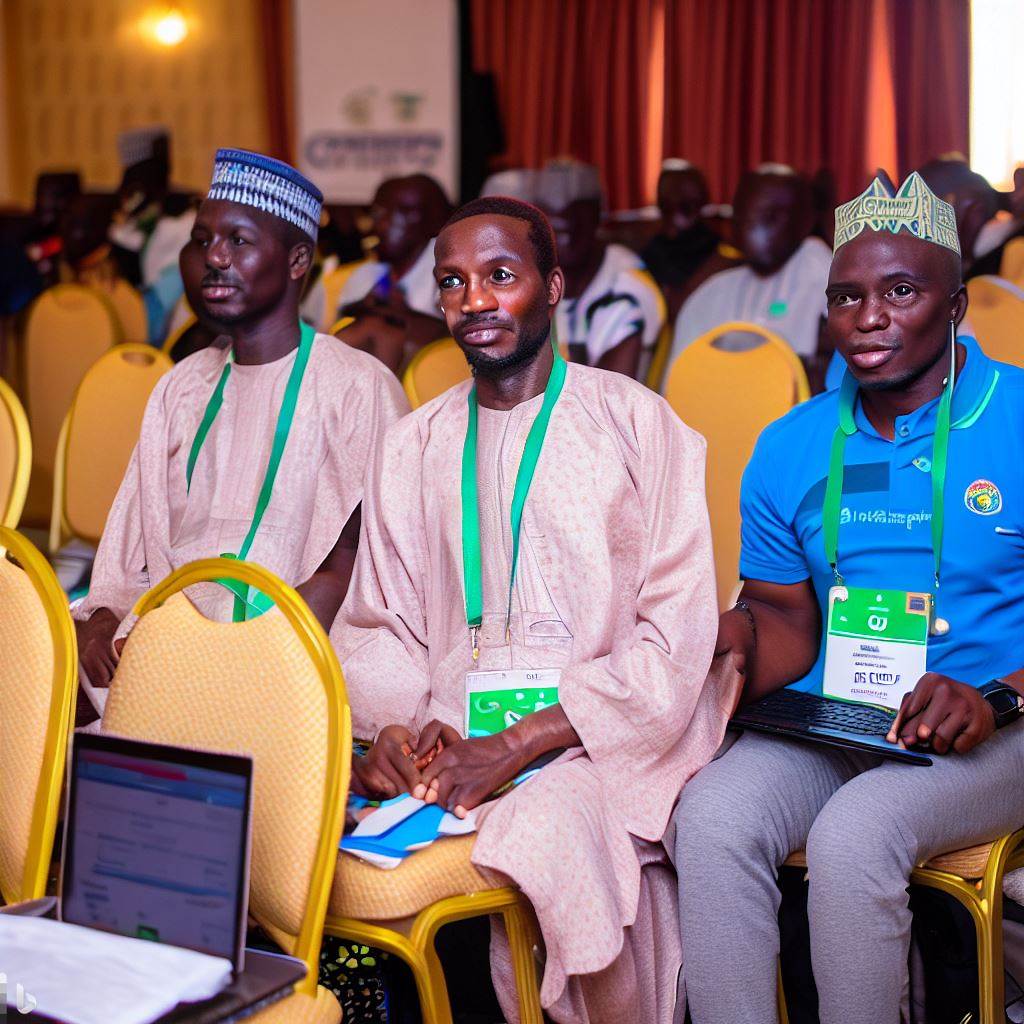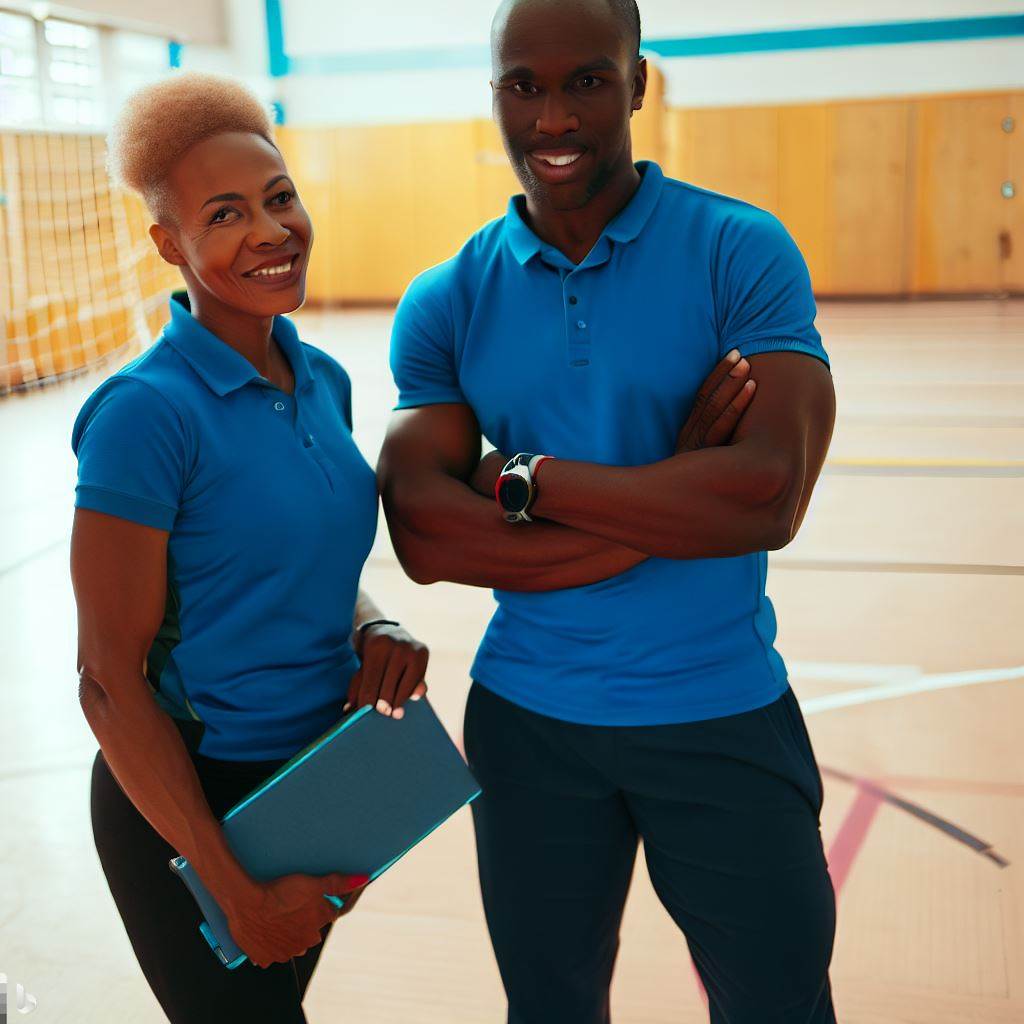Introduction
Physical education plays a pivotal role in shaping the overall development of students in Nigeria.
This section explores the stark contrast between urban vs rural schools in terms of their approach to physical education.
Importance of Physical Education in Schools
- Physical education fosters holistic development.
- It promotes a healthy lifestyle.
- Enhances cognitive abilities.
- Teaches teamwork and discipline.
- Combats obesity and related health issues.
Overview of Physical Education in Nigeria
Nigeria’s diverse educational landscape has urban and rural schools facing distinctive challenges and opportunities.
Urban Schools
- Access to better facilities and resources.
- Qualified physical education instructors.
- Enhanced extracurricular programs.
- Exposure to a variety of sports.
- Competitive sports events.
Rural Schools
- Limited resources and infrastructure.
- Fewer qualified instructors.
- Limited extracurricular activities.
- Focus on traditional sports.
- Community involvement and integration.
This section delve deeper into the urban-rural divide, shedding light on the disparities in physical education delivery.
Physical Education in Urban Schools
Physical education plays a crucial role in schools as it promotes physical fitness, overall health, and well-being among students.
In Nigeria, physical education is an essential component of the education system.
In urban schools, there is a greater availability of facilities and resources for physical education classes.
These schools are equipped with sports fields, swimming pools, and well-maintained gymnasiums that facilitate various physical activities.
The emphasis in urban schools is on organized sports and competitive activities, promoting teamwork, discipline, and healthy competition among students.
These schools often have inter-school tournaments and competitions to enhance students’ skills and provide opportunities for growth.
Urban schools have trained physical education teachers who specialize in various sports and fitness activities.
They are equipped with the knowledge and skills to guide and motivate students in achieving their physical fitness goals.
Moreover, urban schools integrate technology in physical education classes.
They utilize fitness trackers, video demonstrations, and interactive apps to monitor progress, encourage participation, and provide a more engaging learning experience for students.
Overall, physical education in urban schools in Nigeria thrives due to the availability of facilities, emphasis on organized sports, trained teachers, and technological advancements.
Read: Teaching Sports in Nigeria: A PE Instructor’s Perspective
Physical Education in Rural Schools
Rural schools in Nigeria face several challenges when it comes to providing physical education to their students.
Here are some key factors that affect physical education in rural schools:
Limited facilities and resources
Rural schools often lack proper facilities and resources required for comprehensive physical education programs.
They often don’t have well-equipped sports fields, indoor gyms, or modern sports equipment.
Focus on traditional games and activities
Due to limited resources, rural schools tend to focus on traditional games and activities that require minimal equipment and resources.
These include games like wrestling, traditional dance, and indigenous sports.
Lack of trained physical education teachers
Rural schools often struggle to attract and retain qualified physical education teachers.
As a result, students may not receive proper guidance and coaching in various sports and physical activities.
Challenges related to transportation and access to sports infrastructure
Transportation is a major challenge for rural schools.
Many students have to travel long distances to reach school, making it difficult to access sports infrastructure located far away.
Lack of proper road connectivity exacerbates this issue.
These factors significantly impact the quality and scope of physical education in rural schools.
However, efforts are being made to address these challenges and enhance physical education opportunities for rural students.
Read: Career Path: Sports Information Director to Media Manager
Disparities between Urban and Rural Schools
When it comes to physical education, there are notable disparities between urban and rural schools in Nigeria.
These disparities can have a significant impact on the experiences and opportunities available to students.
Unequal distribution of resources
One of the key disparities between urban and rural schools is the unequal distribution of resources.
Urban schools often have access to better facilities, equipment, and funding compared to their rural counterparts.
This lack of resources in rural schools can hinder the development of physical education programs.
Without proper equipment and facilities, the ability to offer diverse physical education activities and sports is limited.
Students in urban schools have a greater chance of experiencing a wide range of activities, such as swimming, tennis, and gymnastics. In contrast, students in rural schools may only have access to limited activities such as running or basic exercises.
Impact on physical education curriculum and student experiences
The disparities between urban and rural schools also impact the physical education curriculum and student experiences.
Urban schools often have dedicated physical education teachers who are trained to deliver comprehensive physical education programs.
They have the knowledge and expertise to design engaging and developmentally appropriate activities.
On the other hand, rural schools may lack specialized physical education teachers.
In some cases, classroom teachers without proper training in physical education are responsible for delivering physical education classes.
This can result in a less cohesive and structured physical education curriculum, which may fail to promote the holistic development of students.
Inequitable opportunities for participation and skill development
Another significant disparity between urban and rural schools is the inequitable opportunities for participation and skill development.
Urban schools often have more opportunities for students to participate in inter-school competitions, tournaments, and organized sports leagues.
These experiences provide students with valuable opportunities to showcase their skills and compete against peers from different schools.
In contrast, rural schools may lack access to such opportunities due to geographical constraints and limited resources.
This can limit the skill development of students in rural schools as they do not have frequent exposure to competitive environments.
As a result, students from rural schools may miss out on crucial experiences that could enhance their physical abilities and contribute to their overall development.
While physical education is an essential component of education, Nigeria’s urban and rural schools experience significant disparities.
These disparities include the unequal distribution of resources, impact on curriculum and student experiences, and inequitable opportunities for participation and skill development.
To ensure an inclusive and comprehensive physical education experience for all students, it is crucial to address these disparities and provide equal access to resources, qualified teachers, and opportunities.
By narrowing the gap between urban and rural schools, Nigeria can promote physical literacy, improve the overall health and well-being of its students, and foster a more equitable education system.
Read: The Impact of Sports Information Directors on Nigerian Sports

Efforts to Improve Physical Education in Rural Schools
In order to bridge the gap between physical education in urban vs rural schools in Nigeria, various efforts have been made to improve the situation.
These efforts include:
Government initiatives and policies
- The Nigerian government has implemented several initiatives and policies to enhance physical education in rural schools.
- These include the provision of funds for sports equipment, infrastructure development, and the recruitment of qualified physical education teachers.
- Government programs such as the National Sports Commission and the Universal Basic Education (UBE) Act have been instrumental in driving these initiatives.
- They aim to ensure that physical education is prioritized and adequately supported in both urban and rural schools.
Non-governmental organizations supporting physical education in rural areas
- Several non-governmental organizations (NGOs) have recognized the importance of physical education in rural schools and have taken action.
- NGOs like Play and Learn Foundation and Grassroots Soccer provide resources, training, and mentorship to schools in rural areas.
- They aim to empower teachers and students, promote active lifestyles, and improve overall physical education programs.
- These NGOs play a crucial role in supplementing government efforts and filling existing gaps in resources and expertise.
Training and professional development for teachers
- Efforts have been made to provide training and professional development opportunities for physical education teachers in rural areas.
- Teacher training programs focus on enhancing their knowledge, skills, and teaching methods in physical education.
- Specialized workshops and seminars are organized to address specific challenges faced by teachers in rural schools.
- The goal is to equip teachers with the necessary tools and strategies to effectively deliver physical education curriculum.
Importance of community involvement and engagement
- Recognizing the significance of community involvement, efforts have been made to engage families, local leaders, and community members.
- Community support helps create a conducive environment for physical education in rural schools.
- Community members can contribute by volunteering as coaches, organizing sports events, and advocating for the importance of physical education.
- By involving the community, rural schools can overcome challenges related to resources, facilities, and overall awareness.
Generally, improving physical education in rural schools in Nigeria requires a multi-faceted approach that involves government initiatives, NGO support, teacher training, and community involvement.
Only by addressing these key areas can the disparities between urban vs rural schools physical education be minimized, ensuring that all Nigerian students have access to quality physical education programs.
Read: Job Outlook for Physical Education Teachers in Nigeria
Benefits of Physical Education for Students
Physical education offers numerous benefits to students, fostering their physical, mental, and emotional well-being, as well as enhancing their academic performance and cognitive abilities.
Physical Health and Fitness
- Regular physical activity improves cardiovascular health, enhances muscular strength and endurance, and maintains a healthy body weight.
- Engaging in physical education classes helps prevent chronic diseases such as obesity, diabetes, and certain types of cancer.
- Physical education promotes bone density, reduces the risk of osteoporosis, and improves overall physical resilience.
Mental and Emotional Well-being
- Physical education plays a crucial role in reducing stress, anxiety, and depression among students.
- Regular exercise releases endorphins, which improve mood and create a sense of happiness and well-being.
- Participating in physical activities helps students develop better self-esteem and self-confidence.
Skill Development and Teamwork
- Physical education classes contribute to the development of various motor skills, including hand-eye coordination, balance, and agility.
- Through sports and team-based activities, students learn vital skills such as communication, cooperation, and competition.
- Working in teams fosters social interaction, empathy, and respect for others, promoting a sense of belonging.
Academic Performance and Cognitive Abilities
- Regular physical activity has a positive impact on academic performance, including improved concentration and focus.
- Physical education enhances brain function and memory, contributing to better learning and knowledge retention.
- Exercise promotes neuroplasticity, leading to increased cognitive abilities, problem-solving skills, and creativity.
Lastly, physical education provides students with a wide range of benefits.
It contributes to their physical health and fitness, improves their mental and emotional well-being, develops essential skills, and enhances their academic performance and cognitive abilities.
Whether in urban or rural schools, it is crucial for educational institutions to prioritize and allocate resources for physical education programs to ensure the holistic development of students.
Conclusion
It is evident that there is a pressing need for equal access to quality physical education in both urban and rural schools in Nigeria.
Disparities in resources and opportunities for physical education can have significant impacts on the holistic development of students .
Addressing these disparities should be a priority for policymakers, educators, and communities alike.
By promoting equal access to quality physical education, we can ensure that all Nigerian students have the opportunity to develop their physical fitness, social skills, and overall well-being.
A call to action is needed to address the existing gaps between urban and rural schools regarding physical education.
This includes allocating sufficient resources, providing training for physical education teachers, and implementing policies that prioritize physical education as an essential component of education.
Furthermore, partnerships between government agencies, NGOs, and local communities can play a vital role in bridging the gap between urban and rural schools.
By working together, we can create inclusive and supportive environments that promote holistic development for all Nigerian students.
Equal access to quality physical education is crucial for the overall development of Nigerian students.
It is essential to recognize and address the disparities between urban vs rural schools in term of physical education to ensure a brighter future for all.




